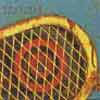|
Just looking at the stage before the start of the show was exciting, still empty of musicians but so full of instruments and equipment, I was compelled to walk up and have a look. Hubbub and chatter filled the room against a background of Latin accordion music. Gordon Sheard was meeting and greeting as most of the band congregated around the bar where John Johnson was sipping espresso. It wasn’t long before Mark Kelso was behind the drums, checking things out, eager to start. It seemed there were as many musicians who came to listen as came to play, always a good sign.
Gordon Sheard is probably best known as the keyboard player-composer with Montuno Police, a member of the band Manteca, and as a teacher at Humber College in the jazz and popular music department. Through his years as a musician, he has gained many fans among fellow-musicians and the public. Tonight was his show. The evening held great promise.
Gordon Sheard opened the night in quintet form with himself on piano, John Johnson on sax, George Koller on bass, Mark Kelso on drums and Alan Hetherington on percussion. With its ultra-eclectic mix of influences and its upbeat, warm and comfy feeling, “The Lion and the Lamb” (the introductory piece on Sheard’s new CD Crucible), set up the audience nicely for the evening.
The second piece, “Manala”, flowed seamlessly into the third, “Dawn Song”, creating one rich twenty-minute tapestry of moods and sounds. Fingers dripping technique, Gordon Sheard moved through sumptuous classicism to ever more insistent, biting jazz chords, building an intense rhythm. Notes flew out like diamonds — sparklingly clear, bright, hard-edged jewels. George Koller’s lovely bowed bass became a powerfully-plucked rhythmic anchor, Mark Kelso’s arms and legs whirred behind the drum kit and John Johnson’s espresso kicked in. These guys were 'on'. By now, they had all shown sensitivity, subtlety and teeth. Despite the world elements, so far they were playing firmly in the modern jazz arena. And then, “Lothario” slunk in. Gordon strapped on the accordion as George Koller introduced us to the tango with some unusual bass stylings. John Johnson blew bass clarinet and Steve McDade joined on trumpet.
Two tunes with important Brazilian elements, “Jongo” and “Stella Maris” wrapped up the set. On the last piece, “Stella Maris”, Aline Morales, leader of the maracatu band Nunca Antes, joined the band on pandeiro and bass player Rich Brown came up to play triangle. Sheard started to talk about the piece, about the importance of the pandeiro in Brazilian music and the basis of the piece, where the rhythm originated and so on, then broke off, apologizing for getting “all ethnomusicological” on us, “it’s really just party music folks!” he said.
In retrospect, this was the transition piece between the first and second sets, each equally enjoyable for this listener but quite different in their overall feel. The first set could be described as closer to mainstream jazz with world and classical influences, the second was more groove-oriented — time for the party. The difference could to some degree be inferred by the use of two outstanding bass players, George Koller on acoustic for the first set and Rich Brown on electric for the second.
The second set started with “Mr. Frango”. Gordon Sheard called Rick Shadrach Lazar (of Montuno Police and Samba Squad), to the stage to play cuica on this one. In case you are wondering, it’s a “friction” drum, I’m sure you have heard it played before — think about the squeaky rubber sound you sometimes hear in Brazilian music, or in Paul Simon’s “Me and Julio”. Rio de Janeiro’s carnival groups feature entire cuica sections (is that ethnomusicological thing catching?).
Anyway, “Mr. Frango” was a great, fun piece with an irresistible Brazilian percussion groove — also featuring some notable trombone from Terry Promane (we were up to septet format for this one). As Gordon Sheard put it (more or less), think samba served up by the Crusaders. As Rick Lazar left the stage at the end of the piece, Gordon Sheard demanded applause for “one of the best” and Rick returned the compliment with “not as good as you Gord, you’re the best!”
|
|

Gordon Sheard |
|

John Johnson |
|

George Koller |
|







